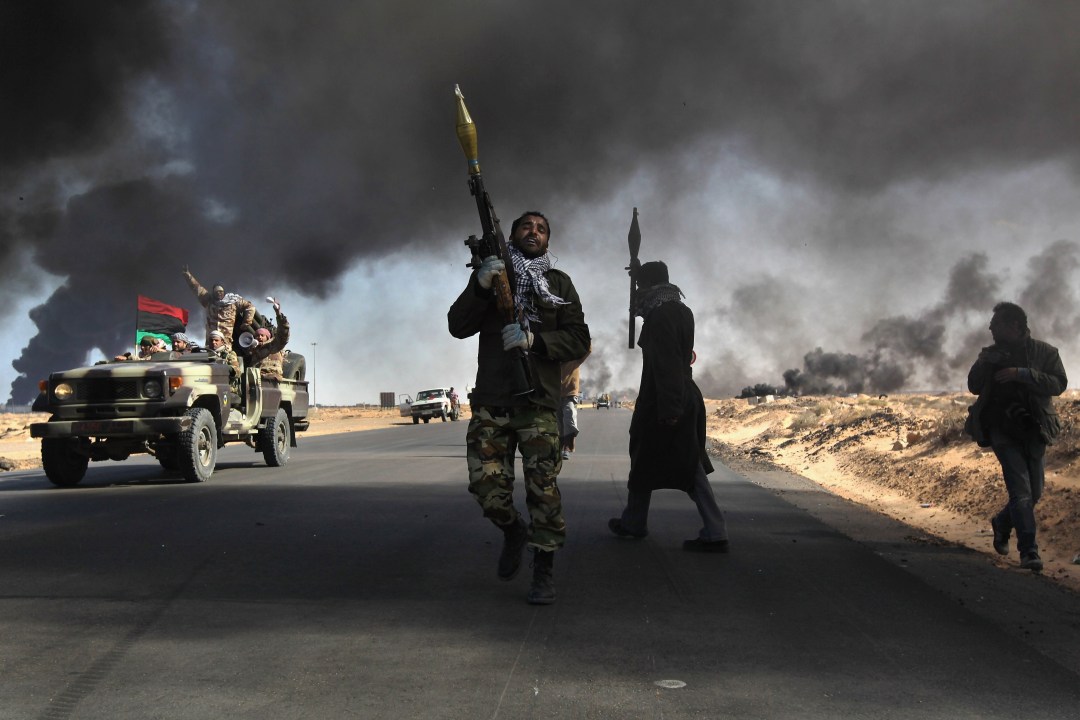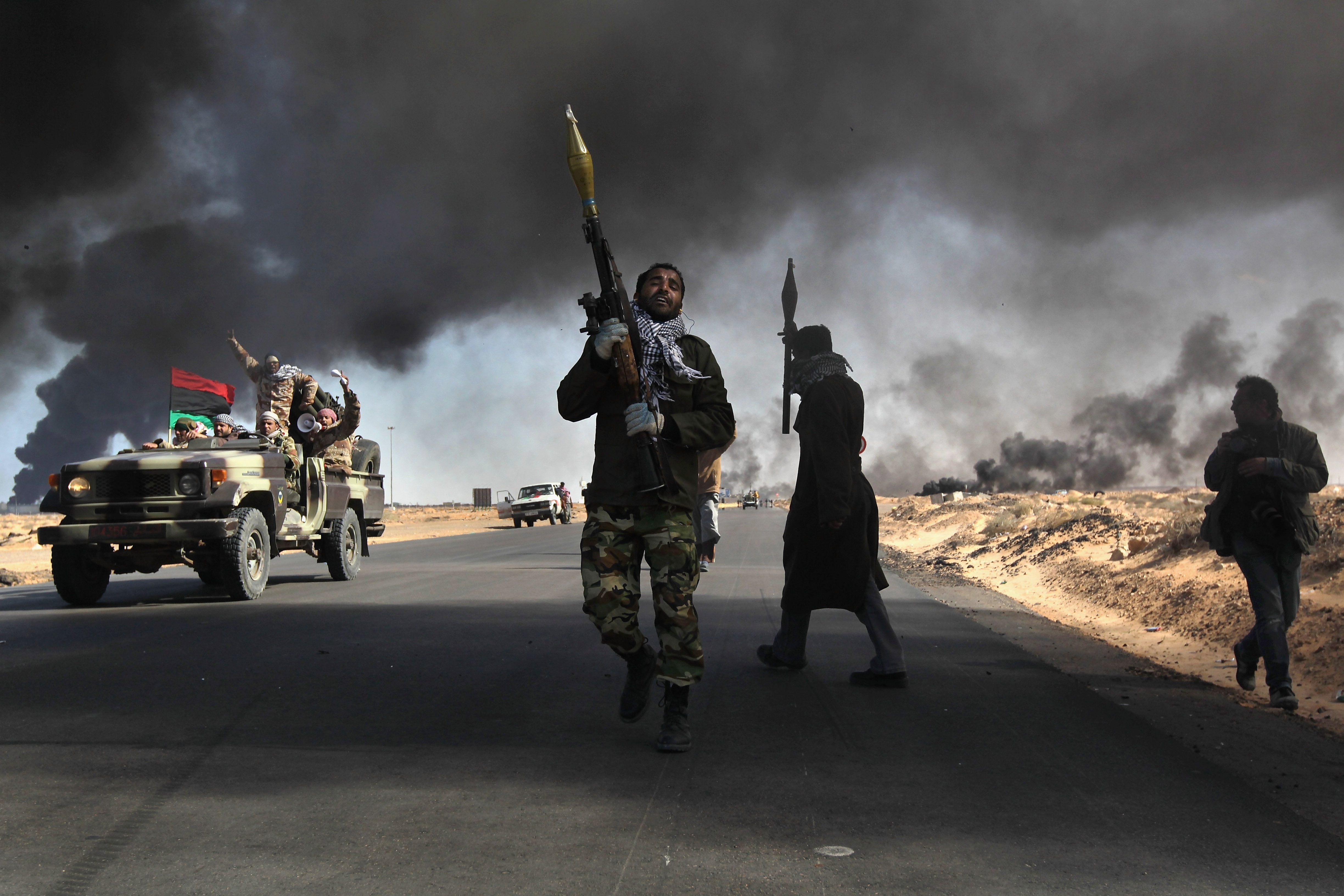The Libyan Civil War of 2011, culminating in the overthrow of Muammar Gaddafi, was the bloodiest of the uprisings across North Africa forming part of the so-called Arab Spring. Western leaders, including David Cameron, backed the rebel forces for a myriad of reasons, not least in response to the brutality shown by Gaddafi in bombing his own people. But there was also an expectation that a Libya free of Gaddafi would be a more prosperous and peaceful country. The reality has been very different.
For a decade now, Libya has been beset by chaos. A chaos that has seen the country riven by regional rivalries, divided by political figures from east and west. A chaos that Isis took full advantage of to establish themselves in the centre of the country, before western – mainly UK – intervention helped drive them out. A chaos that some unscrupulous politicians have taken advantage of to enrich themselves vastly, at the expense of the Libyan people. A chaos which has seen thousands of migrants leave the shores of Libya to risk crossing the Mediterranean to get to southern Europe.
The international community – largely through the United Nations – has not stood entirely idly by. When I was in Libya from 2018-2019, where I served as UK ambassador during that period, the then special representative of the UN Secretary General, Ghassan Salame, worked tirelessly to bring the bickering factions together. In the spring of 2019 he came within days of convening a National Conference which would have brought together all political parties, tribes and civil society to agree on a unified way forward. Ultimately his efforts were undermined by a resumption of fighting between east and west encouraged by various external parties.
Eighteen months later the UN tried again. That process – known as the Libyan Political Dialogue Forum – led to an agreement being reached in Geneva in March 2021 to set up an interim government under Abdul Hamid Dbeibah, with the objective of leading Libya into national elections which were to be held on 24 December last year. Unlike the stillborn National Conference, the Forum was held in private and with none of the wider consultation that had envisaged.
Over a year later there have been no elections. And Dbeibah, while paying lip service to the concept, has thrown up a series of obstacles to prevent them from being held, most egregiously in putting himself forward as a presidential candidate in a clear violation of the Geneva agreement.
Frustrated at Dbeibah’s failure to act, the Tobruk based House of Representatives voted in March this year to replace Dbeibah with former interior minister Fatih Bashagha. This came after Bashagha – a Misratan – reached across the political divide to reconcile with eastern leaders. Initial optimism that this could lead to national reconciliation has been replaced by frustration as Dbeibah has made clear that he has no intention of handing over power. More worryingly, since the HoR vote, he has been turning to Moscow for support, most recently asking Russia to reopen its embassy in Tripoli with immediate effect.
Well-respected across Libya, Bashagha can act as a genuine unifying force. As interior minister from 2018-2021 he had an excellent reputation as a reformer and visionary. Together with the Libyan Attorney-General he oversaw the extradition of Hashem Obaidi to the UK to face trial for his role in the Manchester Arena bombings. He is on public record as saying he is committed to dealing with terrorism and organised crime, including people smuggling.
Recent events in Ukraine have made Libya significantly more important to the UK. It is exempt from OPECs production and sales cap. Its current oil production of around one million barrels per day could, with the right investment triple to three million. For Britain, this alone should serve as a big incentive to improve the situation in Libya. It would, after all, take up much of the slack created by the loss of Russian oil.
After a decade of conflict, Libya is in a perilous position. Its infrastructure needs rebuilding: power, water, sewage, transport links are all in need of updating. Renewable energy is currently scarce, yet the opportunity for solar and wind power is immense. And unlike many post conflict nations, Libya has the resources to fund reconstruction.
There is a genuine opportunity for the UK to establish a strategic relationship with Libya, focused on security, energy and commerce. But this can only happen if Libya is able to unify and move forward from a decade of conflict. The British government therefore faces a stark choice. It can either continue its current policy of not taking sides. Or it can grasp the nettle, press for the Geneva agreement to be honoured, make clear to Dbeibah that his time is up and throw its support behind Bashagha a unifying figure. It may well be that Bashagha is unable to deliver. But it is certain that Dbeibah cannot.







Comments